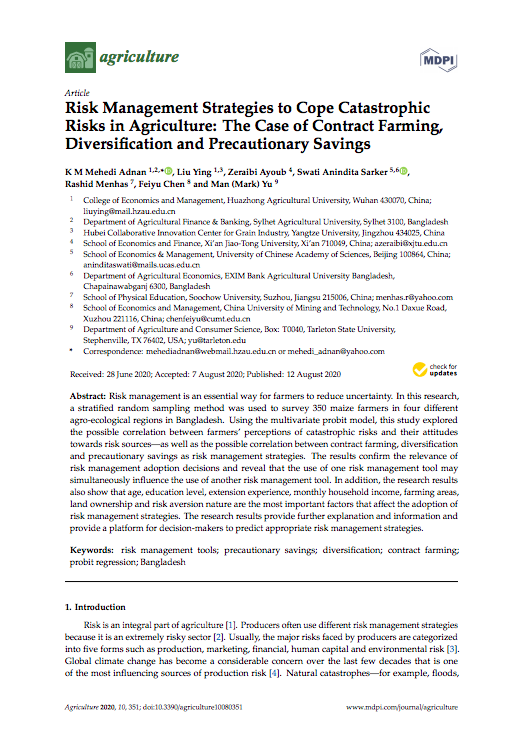Risk Management Strategies to Cope Catastrophic Risks in Agriculture: The Case of Contract Farming, Diversification and Precautionary Savings

ABSTRACT
Risk management is an essential way for farmers to reduce uncertainty. In this research, a stratified random sampling method was used to survey 350 maize farmers in four different agro-ecological regions in Bangladesh. Using the multivariate probit model, this study explored the possible correlation between farmers’ perceptions of catastrophic risks and their attitudes towards risk sources—as well as the possible correlation between contract farming, diversification and precautionary savings as risk management strategies. The results confirm the relevance of risk management adoption decisions and reveal that the use of one risk management tool may simultaneously influence the use of another risk management tool. In addition, the research results also show that age, education level, extension experience, monthly household income, farming areas, land ownership and risk aversion nature are the most important factors that affect the adoption of risk management strategies. The research results provide further explanation and information and provide a platform for decision-makers to predict appropriate risk management strategies.